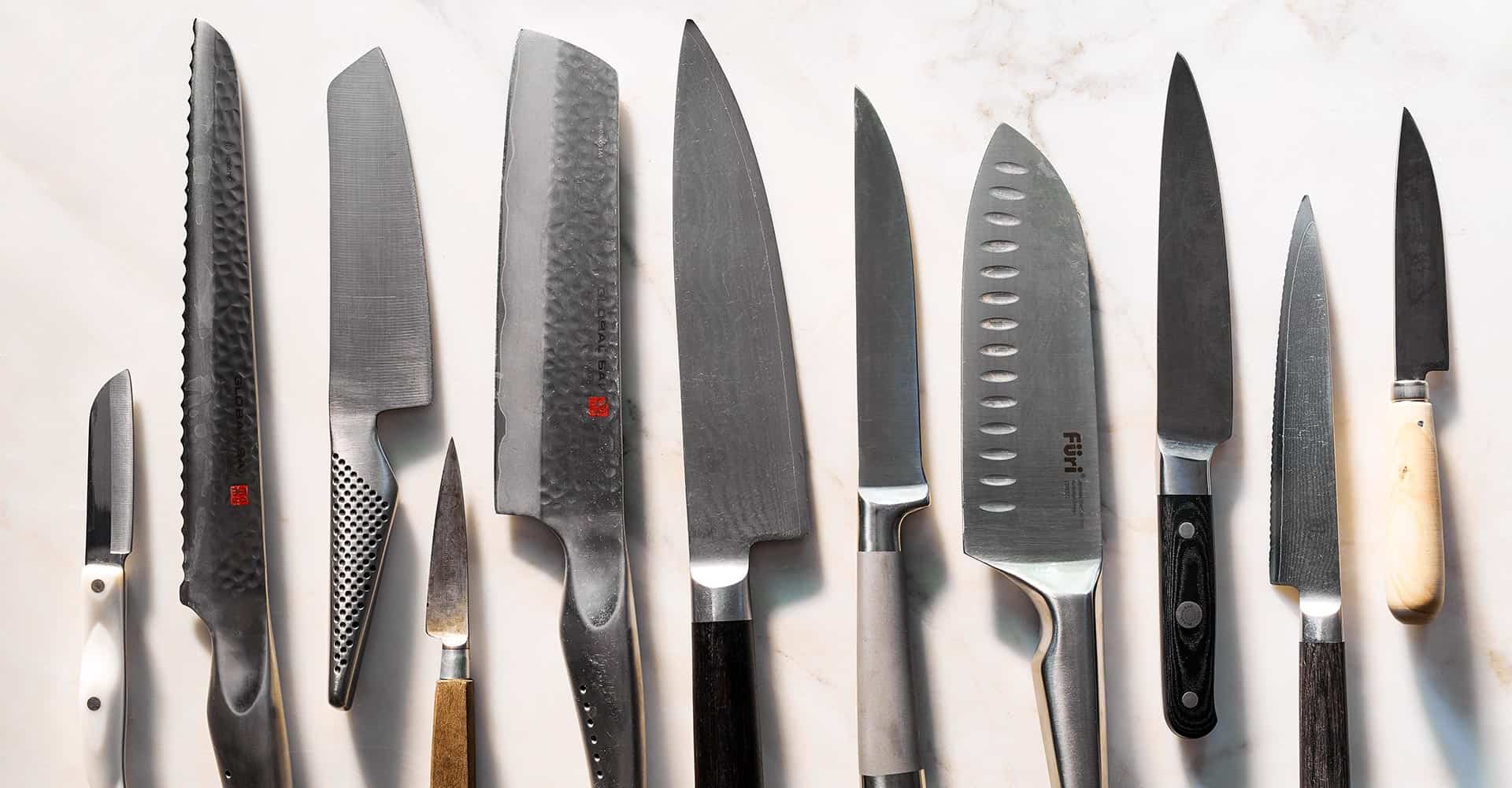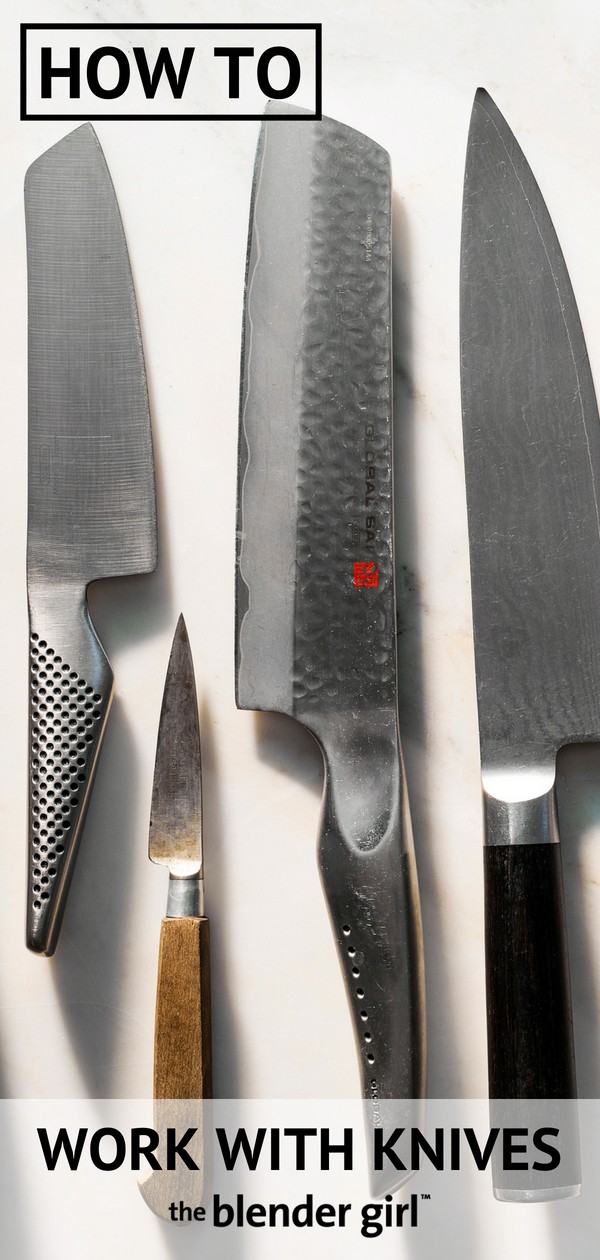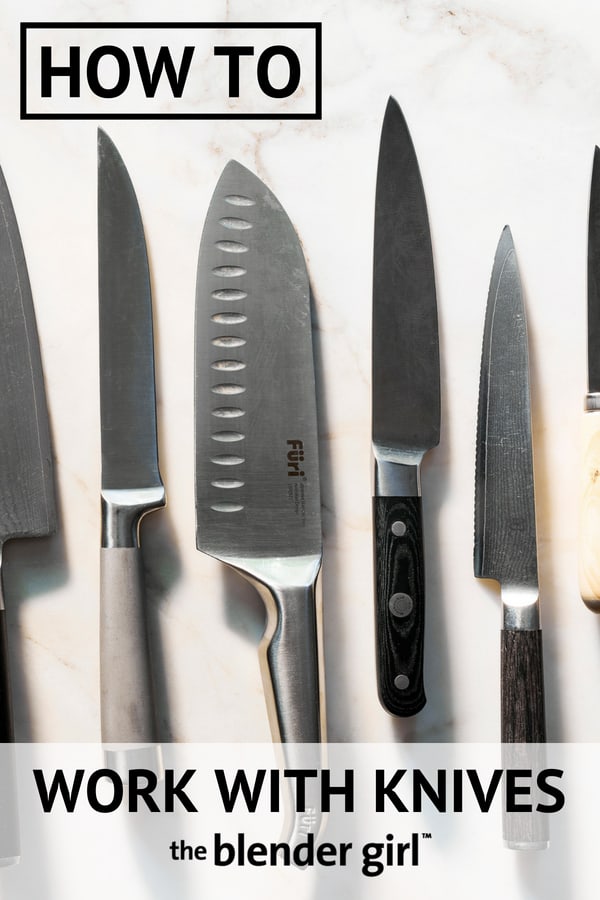Knives
Tips for what knives you need, and how to keep your knives in great condition in order to make healthy recipes.
Invest in good quality knives
Good quality knives are the number one essential item in any kitchen.
Invest in some high quality knives and take care of them, and they should last a long time, if not a lifetime.
Sharp knives are safer and easier to use than cheap blunt knives. Good quality knives have well-balanced weight, feel good in the hand, and are easier to use.
Once you have had a “slice of the good knife” you'll never go back and wonder why you weren’t this sharp sooner!
Table of Contents

What knives do you need?
There are a lot of specialty knives available, and you could spend a fortune collecting expensive knives for any possible application.
The home cook really only needs two knives:
- An all-purpose chef’s knife is the knife I use most often to chop just about everything.
- A paring knife is the second most used knife. It's great for trimming fruits and vegetables and more precise cuts on small ingredients.
Some optional knives:
- A smaller chef’s knife or utility knife is useful for light cutting and slicing small ingredients.
- A cleaver if you intend to crack open young Thai coconuts or any other heavy jobs that require more force. These jobs may damage the edge on your beloved chef's knife.
- A serrated bread knife if you bake bread or purchase whole crusty or sourdough loaves.
Knife Tips
- Invest in getting your knives professionally sharpened about a month after purchase to remove the artificial edge. Most gourmet cookware shops have a knife sharpening service. Then, sharpen your knives regularly with a stone or steel.
- Always clean and wash your knives immediately after use.
- Hand-wash your knives with a soft cloth, and never place them in the dishwasher. The friction with other cutlery will scratch and blunt them, and the heat can melt your handles.
- Always cut ingredients on wooden or plastic boards. Glass or marble boards look gorgeous but they will blunt your knives.
- Don’t use your knives for anything other than cutting food. Don’t open lids, scrape off marks or stickers, or saw off skewers.
- To best preserve the life of your knives, wash and dry them immediately after use, and store them well. Wooden knife blocks absorb moisture and have antibacterial properties. Magnetic strips are also great.
- Don’t store your knives in a kitchen drawer. They will dull with the friction from the other silverware, and are a safety risk.
- If you're traveling with your knives invest in a knife wrap or sheath to reduce friction and increase protection.







